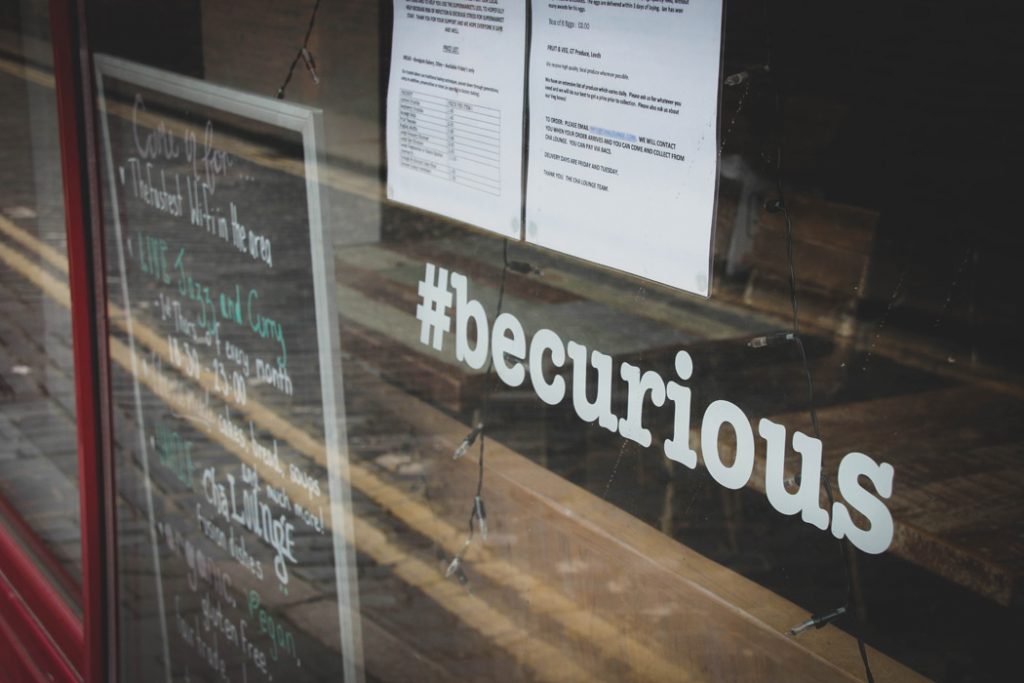
I saw it on Facebook. It made sense. I strongly agreed with it. I reposted it. Within minutes, Facebook friends were informing me that no, what I posted was not true.
Ever had that experience? I can’t remember what it was that I fell for, but fall I did. I was suckered by confirmation bias. It is perhaps the most difficult kind of bias to combat, because when you see something that makes so much sense to you, that you strongly agree with, your tendency is to not check on its veracity. Of course it’s true. It must be true. It makes so much sense. And there’s the mighty fall.
What does this have to do with investing, markets, and financial planning? A lack of critical thinking has very real consequences whether we are talking social media posts, political statements, or investment analysis. Delusion can be very costly.
The cost is that incomplete, false, or partly false information can lead to poor decisions. The old saying about data from computer science is “garbage in, garbage out.”
Critical thinking doesn’t mean that you criticize. It means that you ask questions. When I put my investment analyst hat on, I ask questions, and more questions. I drill down, and drill some more. And then I ask even more questions. I have a saying I coined decades ago about this process: “What you don’t know can and will hurt you.”
To be a good investment analyst, you need to be like a toddler who constantly asks, “Why? But why?” Yes, it can be annoying, but it’s important. While I’m on the topic of sayings, the greatest legacy my father left me was one simple sentence: “You’ll never know till you ask.”
And while we’re on the subject of my father, he was a WWII combat veteran. When he came back from Europe, the U.S. Congress passed the GI Bill. He could have gone to college tuition-free and received a stipend while in school. To his eternal regret, he didn’t take advantage of it. He was 24 and thought he was too old to go to college.
He went on to explain that it wasn’t about the things he would have learned. It was his observation that people he worked with who had been to college just thought differently. To my father, what he missed out on was learning how to think critically.
I see this lack of critical thinking all around me. Clients often come to me with some article or newsletter that touts a specific investment. They want to know my opinion. More often than not, the article explains all the great reasons why said investment will be fantastic, without a single word about what can go wrong.
If you have not trained yourself to ask questions and more questions, then you’re probably not asking yourself what can go wrong when you read a glowing article. And that can be very costly.
Every investment has downside risks. The first job when looking at an investment is not to ask yourself what can go right. If no one thought things could go right, it wouldn’t be brought to your attention. So you really don’t need to ask that question, at least yet. But you absolutely need to ask what can go wrong and dig until you can find all of the possibilities. That’s job #1.
Job #2 is to determine how likely it is that those things might go wrong. And job #3 is to decide if these risks are acceptable to you. For me, all three are necessary steps before I ever look at what can go right. The reason is that the story about what can go right is extremely seductive. Dreams of riches dance in our heads, and just like confirmation bias, they entice us to ignore or give little attention to critical thinking.
Watching the state of politics and civil strife in America today, I wonder whether things might be better if everyone learned how to think like an investment analyst. I wonder if my father’s observation about the value of learning to think critically could point the way to an improved level of dialogue.
Hal Masover is a Chartered Retirement Planning Counselor and a registered representative. His firm, Investment Insights, Inc is at 508 N 2nd Street, Suite 203, Fairfield, IA 52556. Securities offered through, Cambridge Investment Research, Inc, a Broker/Dealer, Member FINRA/SIPC. Investment Advisor Representative, Cambridge Investment Research Advisors, Inc., a Registered Investment Advisor. Investment Insights, Inc & Cambridge are not affiliated. Comments and questions can be sent to hal.masover@emailsri .com. These are the opinions of Hal Masover and not necessarily those of Cambridge, are for informational purposes only, and should not be construed or acted upon as individualized investment advice. Investing involves risk. Depending on the types of investments, there may be varying degrees of risk. Investors should be prepared to bear loss, including total loss of principal. Past performance is no guarantee of future results.
Indices mentioned are unmanaged and cannot be invested in directly.
